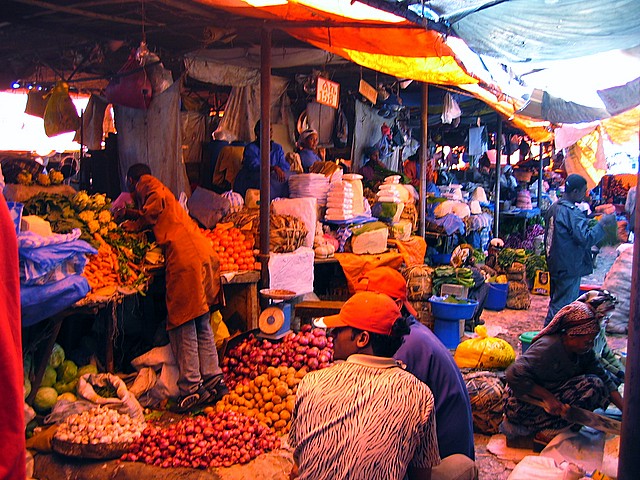ESSP Working Paper 148, by Alan de Brauw, Kalle Hirvonen, and Gashaw T. Abate.
Abstract: In early July 2020, we called by telephone a representative sample of nearly 600 households in Addis Ababa, Ethiopia to assess income changes and household food and nutrition security status during the COVID-19 pandemic (recall period covering June). This was the third administration of a COVID-19 related survey to these households, following surveys in early May 2020 and early June. About 64 percent of the households indicated in the third survey that their incomes were lower than expected (down from 67 percent reporting lower incomes than expected in previous month) and 42 percent reported that they are extremely stressed about the situation (down from 45 percent in previous month). Using a pre-pandemic wealth index, we find that less-wealthy households were considerably more likely to report income losses and high stress levels than were wealthier households. Compared to the period just before the pandemic (January and February 2020), indicators measuring food security have significantly worsened but during the pandemic they have remained relatively stable. Households now are less frequently consuming relatively more expensive but nutritionally richer foods, such as fruit and dairy products. However, overall food security status in Addis Ababa is not yet alarming and we see small signs of improvements in this July phone survey relative to previous months. However, many households have drawn down their savings over past months to buffer their food consumption. As the daily COVID-19 infection rates are still rising in Ethiopia, the food security situation in Addis Ababa may deteriorate over coming months, especially as the savings levels among the poorest households are now low. This calls for a further scale-up and strengthening of existing support programs. Download the PDF.
